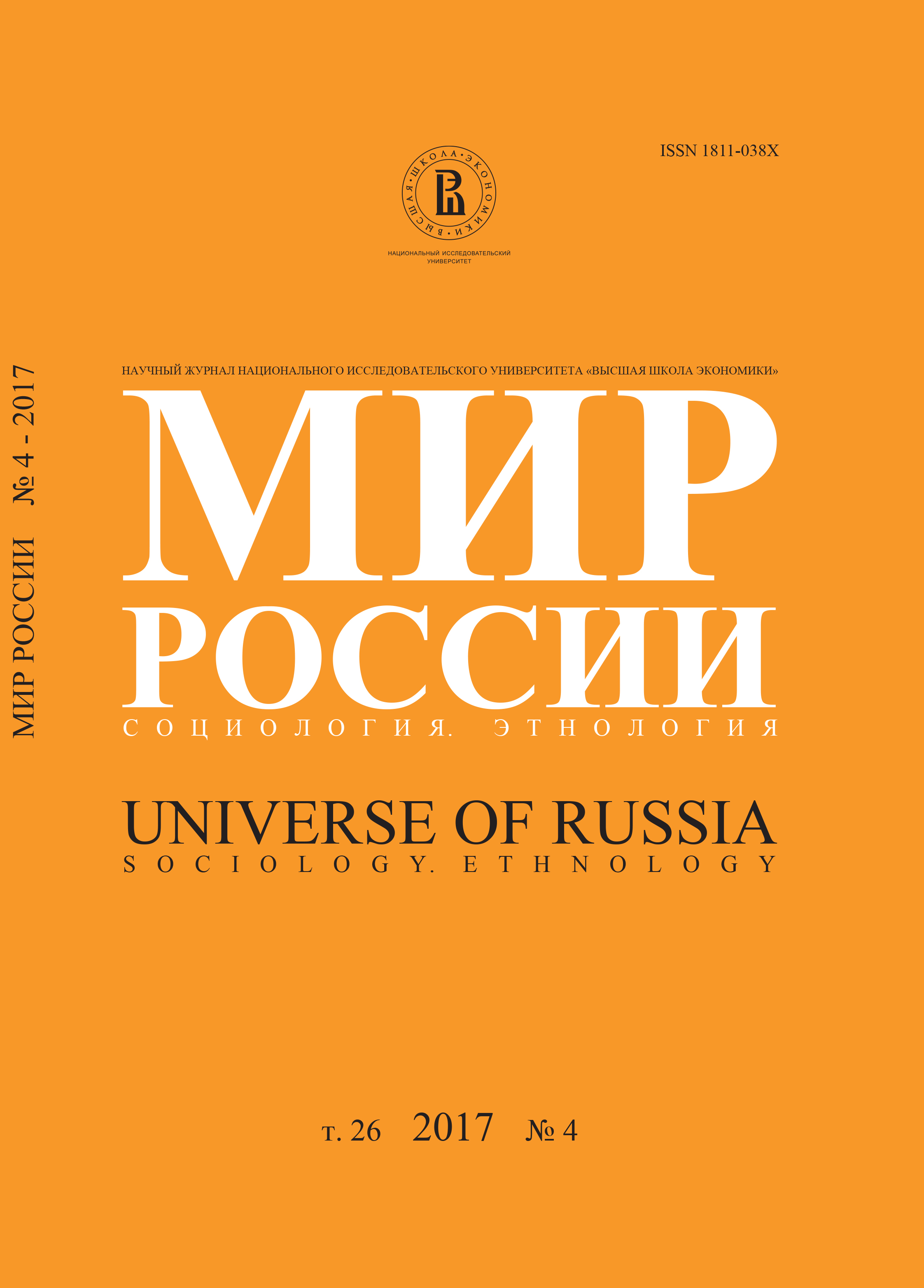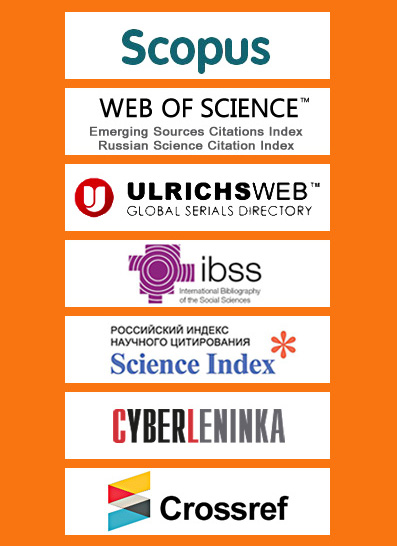Цивилизационные контуры и эффекты российских революций XX столетия
Аннотация
Владимир Вячеславович Козловский – доктор философских наук, профессор, заведующий кафедрой социологии культуры и коммуникации, Санкт-Петербургский государственный университета (СПбГУ); директор, Социологический институт РАН. Адрес: 190005, Санкт-Петербург, ул. 7-я Красноармейская, д. 25/14. E-mail: vvk_soc@mail.ru
Цитирование: Козловский В.В. (2017) Цивилизационные контуры и эффекты российских революций XX столетия // Мир России. Т. 26. № 4. С. 7–29. DOI: 10.17323/1811-038X-2017-26-4-7-29
В статье рассматриваются цивилизационные контуры, эффекты и последствия российских революций ХХ столетия. Это необходимо для понимания проекта множественных модерностей российского общества в начале ХХI столетия. Февральская и Октябрьская революции 1917 года стали переломным моментом современной мировой истории. Через сто лет мы подводим итоги свершившейся масштабной постреволюционной трансформации в истории новейшей России. Теоретико-методологическим основанием исследования является цивилизационный анализ, разработанный в трудах зарубежных авторов – Н. Элиаса, П. Сорокина, Б. Нельсона, В. Каволиса, Ш. Эйзенштадта, Й. Арнасоан, и российских исследователей – О.И. Шкаратана, Н.И. Лапина, Н.С. Розова, И.Г. Яковенко. Логика цивилизационного анализа российских революций определяется взаимоотношением четырех базовых социологических категорий, среди которых социальная структура, институты, культура, субъектность (или агентность). Соотношение социальной структуры и культуры представляется стержневым, так как социальные условия, причины, ресурсы, группы, их мотивация, поведение и действия осуществляются в формах культуры, ключевых символических кодах, нормах и правилах. Это означает, что динамика взаимосвязи социальной структуры и культуры функционально, структурно, поведенчески закрепляется и воспроизводится многообразными социальными институтами, которые, в свою очередь, вариативно исполняются и видоизменяются различными общественными акторами (агентами). В рамках данной категориальной схемы дается картина цивилизационных контуров и следствий российских революций. Предлагается целый ряд сопоставлений деструктивных и конструктивных цивилизационных эффектов российских революций. Академический разворот в оценке прошлого революционного столетия в России нацелен на обнаружение неизбежности тектонических сдвигов социально-структурного, культурного, институционального, субъектного характера. Обновление общественного устройства в результате радикальных переворотов 1917 г. означало утверждение ускоренного проекта модернизации и построения ориентированного на широкие массы населения нового цивилизационного порядка.






